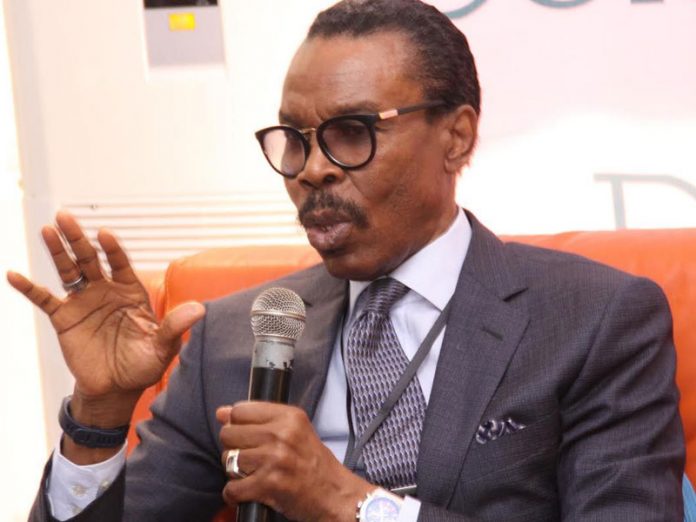By Chinelo Obogo
Economic expert, Bismarck Rewane, has said that only five domestic airlines in Nigeria control 75 percent air traffic locally.
Speaking during the annual conference of the League of Airports and Aviation Correspondents held in Lagos on Thursday, Rewane who did not mention the names of the airlines, said that domestic passenger traffic declined for the second consecutive year to 11.5million in 2024, and air transport sector contracted by 0.81 percent in first quarter of 2025, the 6th consecutive quarterly decline.
He said Nigeria has 32 airports, but only 20 were considered profitable in 2024, while 92-96 percent of traffic flows through just four airports. He also stated that the country’s aviation sector lost $3.5 billion in revenue between 2020 and 2022.
He expressed concern that Nigeria still spends billions on airport operations yet air traffic continues to decline which is not commensurate with expenditure.
Giving more details, he said the international airport in Lagos processes 6.5 million passengers annually and spends $1.75bn dollars to run the airport while Los Angeles Intl (USA) processes 76.5 million passengers and spends 3.5 billion dollars; Heathrow (UK) processes 83.9 million passengers and spends 15.6 billion dollars; Chicago O’Hare Intl (USA) processes 58 million passengers and spends N4.5 billion dollars; Dubai Intl (UAE) processes 92 million passengers and spends 4.0 billion dollars.
Rewane who spoke on ‘Aviation Financing in Nigeria: Risks, Opportunities and Prospects,’ said the Nigerian aviation sector is in need of consolidation and a
need for a competitive hub system, preferably in Lagos, then Abuja.
“We need very strong and effective regulation for safety; concessions and PPPs should be prioritized for airport upgrades to aid national fiscal sustainability and avoid inefficient operations. There should be investment in local maintenance, repair & overhaul hubs.
“The government should focus on policy and regulation, not running airlines or building airports directly and policy consistency is crucial for rebuilding trust with global investors and attracting global aviation capital,” he said.


